How Does the Legal System in The UK Handle Violent Crime Cases?
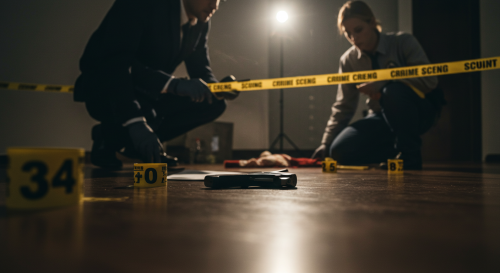
How Does the Legal System in The UK Handle Violent Crime Cases?
The legal system in the UK is responsible for handling violent crime cases, ensuring that offenders are held accountable for their actions. From investigation and arrest to the trial process, sentencing, and appeals, there are specific procedures in place to ensure justice is served. Let’s explore how the legal system handles violent crime cases in the UK.
Before delving into the legal processes, it’s essential to understand the scope of violent crime in the UK. This includes different types of violent crimes such as assault, robbery, sexual offences, domestic violence, and murder. Each crime carries its own set of legal implications, which the legal system aims to address through rigorous procedures.
To effectively handle violent crime cases, the legal system incorporates various stages, starting with the investigation and arrest.
When a violent crime is reported, the police take charge of the investigation process. They gather evidence, interview witnesses, and collect relevant information to build a strong case against the perpetrator. This stage involves thorough fact-finding, analysis, and collaboration with forensic experts if necessary.
Once the investigation progresses, the police make arrests based on substantial evidence or if they have reasonable grounds to suspect an individual’s involvement in the crime. The arrest process involves informing the suspect of their rights and collecting their personal information for further legal proceedings.
After the arrest, the case is handed over to the Crown Prosecution Service (CPS). The CPS, an independent public authority, reviews the evidence presented by the police and decides whether there is enough to proceed with charges. They work closely with the police to ensure a comprehensive case is built, consulting with legal experts if needed.
If the CPS determines that there is sufficient evidence to prosecute, the case moves forward to the trial process.
Violent crime cases are heard in different courts in the UK, depending on the severity of the offence. These include Magistrates’ Courts and Crown Courts. The trial process involves a set of legal procedures and standards that aim to ensure a fair trial for all parties involved.
During the trial, witnesses and evidence are presented by both the prosecution and defence. Witnesses may be called to give evidence, and physical evidence such as DNA samples or surveillance footage may be presented to support the case. The judge ensures that proceedings adhere to legal protocols, offers guidance to the jury, and makes decisions on points of law.
Upon conviction, the court proceeds to determine the appropriate sentence for the offender. Factors such as the nature and severity of the crime, the offender’s criminal history, and any mitigating or aggravating circumstances are taken into account. The court aims to deliver a fair and proportionate punishment that reflects the seriousness of the crime.
Sentencing options for violent crimes in the UK range from fines and community orders to custodial sentences. The judge has the discretion to impose the most suitable punishment based on the specific circumstances of the case.
If a convicted person believes that there has been a legal error or miscarriage of justice in their case, they have the right to appeal the conviction or sentence. The appellate courts, such as the Court of Appeal or the Supreme Court, review the case and assess whether any errors were made during the trial that could have impacted the outcome. If an error is identified, the courts may overturn the conviction or modify the sentence accordingly.
Mechanisms are in place to review convictions in cases of fresh evidence or newly discovered facts that could potentially undermine the conviction.
Throughout the legal process, support services are available for victims of violent crimes. These services aim to provide emotional support, practical assistance, and access to resources that can aid in the recovery and well-being of victims.
Regarding the rehabilitation of offenders, the UK legal system recognises the importance of addressing the underlying causes of criminal behaviour to reduce the risk of reoffending. Rehabilitation programs are designed to assist offenders in reintegrating into society, addressing their behavior, and acquiring the necessary skills to lead law-abiding lives.
By understanding the various stages and processes involved, it becomes evident how the UK legal system handles violent crime cases, ensuring fair trials, appropriate sentencing, and support for both victims and offenders.
Overview of Violent Crime in the UK
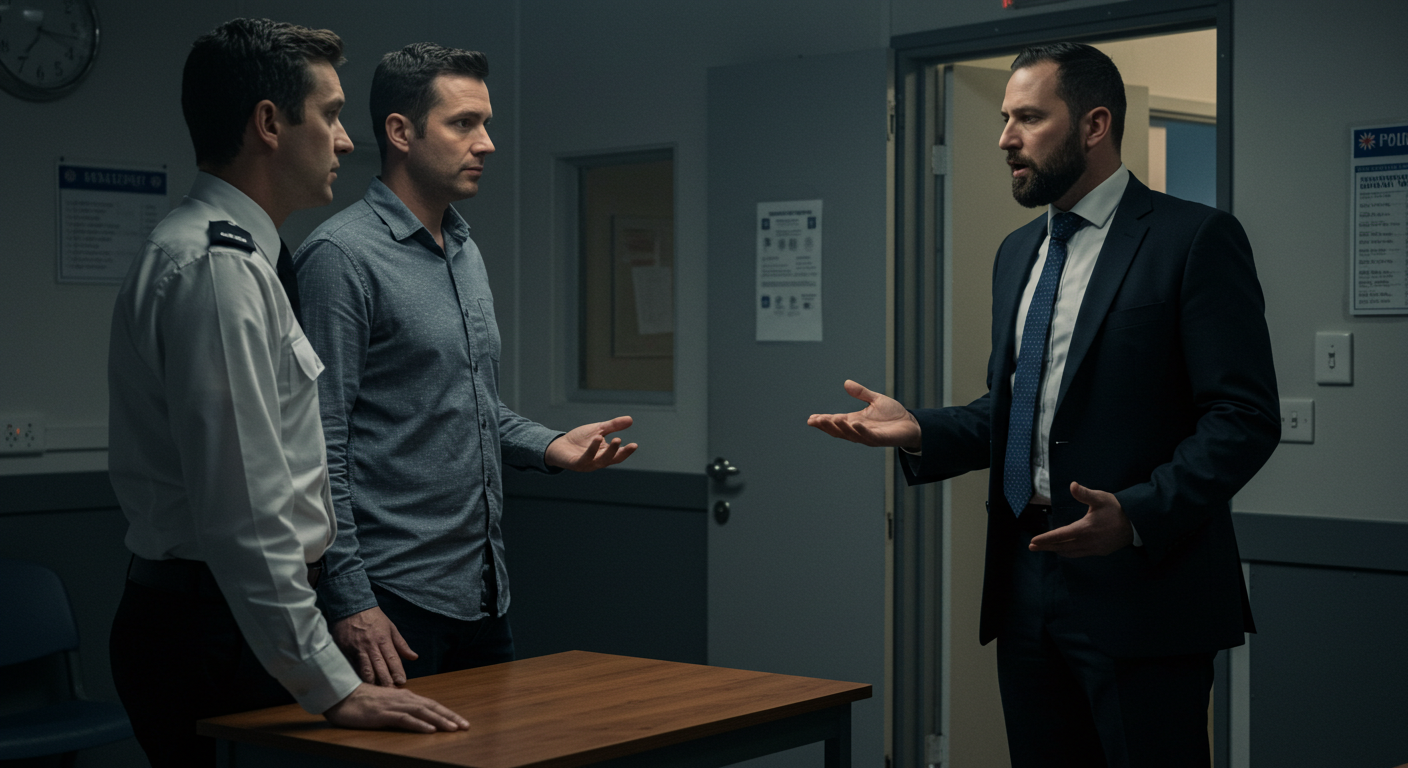
Overview of Violent Crime in the UK
Violent crime in the UK has become a major cause for concern in recent years. When we delve into the details of violent crime in the UK, we find that it encompasses a range of offences including murder, assault, robbery, and sexual offences.
The latest statistics clearly indicate an alarming increase in violent crime rates, particularly in urban areas. To effectively tackle this issue, the UK government has implemented a variety of strategies. These measures include bolstering police presence in affected areas, fostering community engagement programs, and imposing stricter sentencing for offenders.
Moreover, initiatives have been initiated to enhance public awareness and encourage reporting of violent crimes.
What are the Types of Violent Crimes?
- Homicide
- Assault
- Robbery
- Rape
- Domestic violence
- Sexual assault
- Child abuse
- Gang violence
- Hate crimes
- Stalking
- Harassment
- Arson
Investigation and Arrest
When it comes to investigation and arrest of violent crime cases in the UK, the legal system follows a specific process. This includes conducting an investigation, gathering evidence, and analysing forensic data. The police are at the forefront of the investigation and play a crucial role in identifying suspects and making arrests.
They are responsible for collecting statements from witnesses, examining CCTV footage, and coordinating with forensic experts. Once enough evidence has been gathered, the police can proceed with an arrest if they believe they have identified the suspect. The individual who has been arrested will then be taken into custody and go through further legal procedures.
How Does the Police Handle Violent Crime Cases?
When it comes to handling violent crime cases, the police in the UK follow a specific process. First, they receive reports of violent incidents and initiate an investigation. This involves gathering evidence, interviewing witnesses, and identifying potential suspects.
Once they have enough evidence, the police make arrests and take the suspects into custody. During the arrest process, the police inform the suspects of their rights and ensure their safety. The police work closely with the Crown Prosecution Service to build a strong case for prosecution.
The police play a critical role in investigating and apprehending individuals involved in violent crime cases in the UK.
What Happens during the Arrest Process?
During the arrest process in the UK, the police take certain steps to ensure a smooth and lawful procedure. They assess the situation and gather evidence, such as witness statements and physical evidence. They then identify and apprehend the suspect, making them aware of their rights and reasons for arrest.
The suspect is then taken to the police station for questioning, where their personal details are recorded and they may be fingerprinted and photographed. The police may also conduct a search of the suspect’s belongings. The arrest process aims to secure evidence, protect the rights of the suspect, and facilitate a fair investigation.
During the arrest process in the UK, the police take certain steps to ensure a smooth and lawful procedure. They assess the situation and gather evidence, such as witness statements and physical evidence.
They then identify and apprehend the suspect, making them aware of their rights and reasons for arrest. The suspect is then taken to the police station for questioning, where their personal details are recorded and they may be fingerprinted and photographed.
The police may also conduct a search of the suspect’s belongings. The arrest process aims to secure evidence, protect the rights of the suspect, and facilitate a fair investigation.
The Role of the Crown Prosecution Service
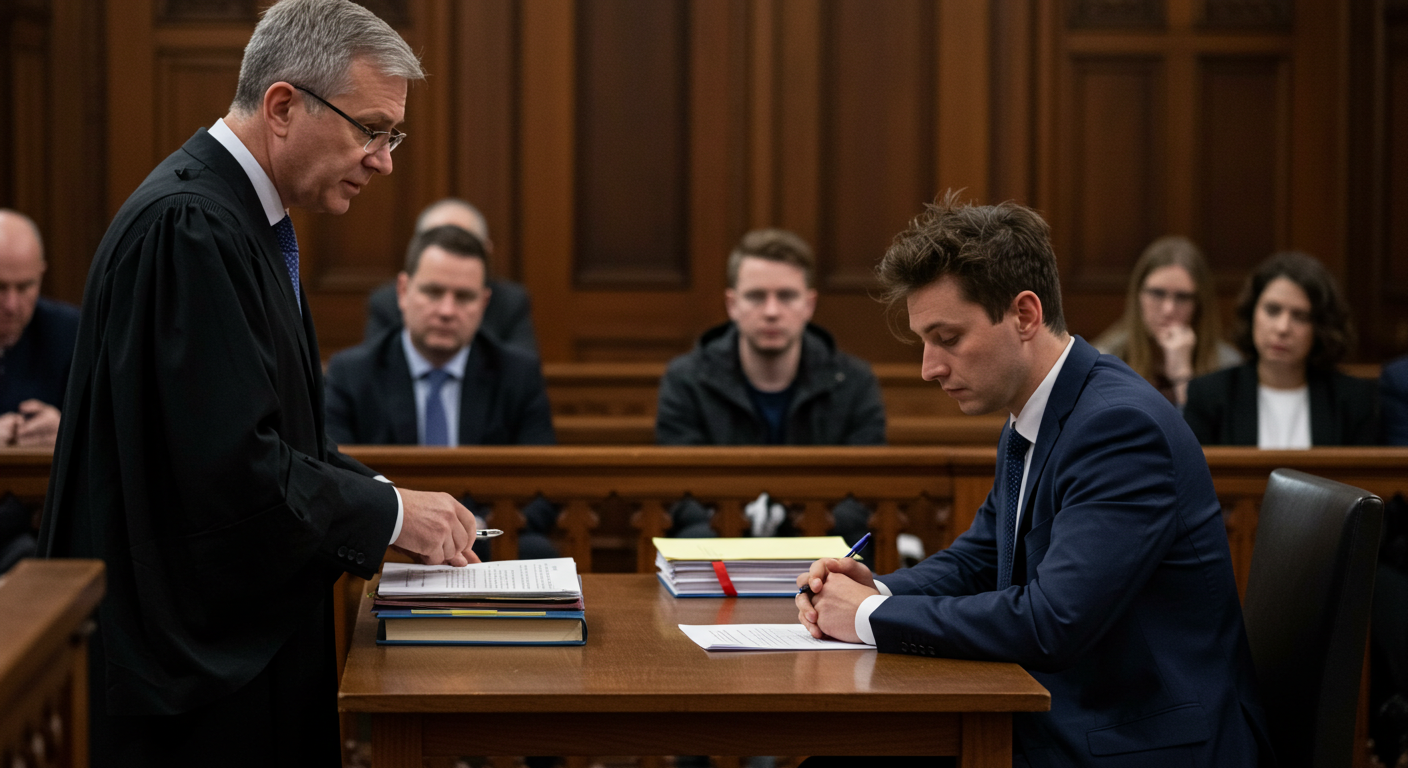
The Role of the Crown Prosecution Service (CPS) is pivotal in the UK legal system, especially concerning violent crime cases. Acting as a crucial link between law enforcement and the courts, the CPS assumes the responsibility of assessing cases submitted by the police, ascertaining the presence of adequate evidence, and making informed charging decisions.
Collaborating closely with the police, this service diligently collects evidence and diligently prepares cases for trial. In the courtroom, the CPS acts as the prosecutor, skillfully presenting the evidence and persuasive arguments to secure a conviction.
Paramount to its purpose, the CPS ensures that justice prevails and individuals who perpetrate violent crimes are held accountable for their wrongdoing.
The Trial Process
The trial process, an integral part of the UK legal system, comprises several key steps to ensure an equitable and unbiased judgment:
- Arraignment: During this initial stage, individuals accused of an offence are informed of the charges levied against them and are invited to enter a plea.
- Pre-trial procedures: This phase involves the collection of evidence, evidence from witnesses, and the submission of applications if appropriate.
- Jury selection: A group of jurors is carefully chosen to listen to the case and render a decision.
- Opening statements: Both the prosecution and the defence present a comprehensive summary of their respective cases.
- Presentation of evidence: Witnesses, documents, and other forms of evidence are produced to substantiate the arguments put forth by each side.
- Cross-examination: Both parties are granted the opportunity to interrogate witnesses brought forward by the opposing side.
- Closing arguments: The prosecution and the defence conclude their cases by summarising the presented evidence and advocating for their interpretation of the events.
- Jury deliberation: Jurors carefully examine the evidence and arguments before arriving at a verdict.
- Verdict: The jury announces their decision, which may be either “guilty” or “not guilty.“
- Sentencing: In the event that the defendant is found guilty, the court determines an appropriate punishment.
What Are the Different Courts Involved in Violent Crime Cases?
In the UK legal system, the different courts involved in handling violent crime cases ensure fair judgment and deliver appropriate justice. They include:
1. Magistrates’ Court: This court deals with less serious offences and acts as the initial stage for most criminal cases.
2. Crown Court: It handles more serious violent crimes that require a jury trial. The Crown Court has the authority to impose longer sentences and deals with cases that originated in the Magistrates’ Court.
3. High Court: The High Court hears appeal cases from the Crown Court and deals with cases involving complex legal issues or serious offenses.
4. Court of Appeal: This court reviews decisions made in the Crown Court and the High Court. It can uphold, overturn, or modify these decisions.
These different courts play vital roles in ensuring that justice is served in violent crime cases in the UK.
What Is the Jury System in the UK?
The jury system in the UK plays a vital role in the legal process, ensuring that the decision-making power lies with the public. Juries, which consist of randomly selected groups of individuals from the community, listen to the evidence in a trial.
They then assess the facts and determine guilt or innocence. The idea behind this system is to provide a fair and unbiased judgment based on the perspectives of ordinary citizens. The jury system in the UK promotes transparency and democratic values by allowing individuals accused of violent crimes to have their cases deliberated upon by their peers.
How Are Witnesses and Evidence Presented in Court?
When witnesses and evidence are presented in court, it is crucial to follow proper procedures to ensure a fair and accurate trial. Here are key aspects to consider:
- Witnesses: They play a critical role by providing testimonies under oath, answering questions from both the prosecution and defence. It is essential for witnesses to be credible and reliable in their statements.
- Evidence: In court, evidence can take many forms, including physical objects, documents, or digital files that are relevant to the case at hand. It is of utmost importance that evidence is properly collected, preserved, and presented to the court.
- Presentation: Lawyers have the responsibility of presenting witnesses and evidence to the court. This is accomplished through direct examination, cross-examination, and the submission of exhibits. These processes allow the court to evaluate the credibility and weight of the evidence presented.
- Rules: The admissibility of evidence is governed by specific rules. These rules focus on factors like relevancy, authenticity, and hearsay. Their purpose is to ensure that only reliable and relevant evidence is considered during the trial.
By following these procedures, the legal system can promote justice and fairness, particularly when handling cases involving violent crimes.
What Is the Role of the Judge?
The role of the judge is crucial in ensuring a fair trial and upholding the principles of justice in the UK legal system. So, what is the role of the judge? Well, the judge is responsible for interpreting and applying the law, making decisions on legal issues, and ensuring that proceedings are conducted in a just manner.
One of the specific roles of the judge is presiding over the trial. They oversee the trial proceedings, maintain order, and ensure that both the prosecution and defence have a fair opportunity to present their case. In cases with a jury, the judge also instructs the jury by providing them with guidance on understanding the law and applying it to the evidence presented.
Furthermore, the judge plays a vital role in ruling on the admissibility of evidence. They decide which evidence is relevant, admissible, and permissible in court. Additionally, the judge resolves legal disputes and makes rulings on objections and motions raised by the lawyers, thereby deciding legal issues.
If a defendant is found guilty, the judge also determines the appropriate sentence based on the severity of the crime, aggravating and mitigating factors, and legal guidelines. In this way, the judge ensures that justice is served by sentencing the guilty party appropriately.
Overall, the judge’s role is crucial in safeguarding the rights of all parties involved and ensuring a fair trial. They play a fundamental role in maintaining the integrity of the legal system and upholding justice.
Sentencing and Punishment

The legal system in the UK handles violent crime cases by imposing appropriate sentences and punishments based on the severity of the crime. Sentencing and punishment guidelines provide a framework for judges to determine the appropriate punishment.
Factors like the nature of the offense, the harm caused, and the offender’s criminal record are considered in the process of determining the sentences and punishments. Sentencing options include imprisonment, fines, community orders, and suspended sentences. The table below provides an overview of the typical sentences for different types of violent crimes in the UK.
The actual sentences and punishments may vary depending on the specific circumstances and the judge’s discretion. It is important to note that the legal system emphasizes fair and proportional sentencing and punishment to ensure the safety and well-being of the society.
What Factors are Considered in Determining the Sentence?
In determining the sentence for violent crimes in the UK, several factors are considered. These include the severity of the offence, the impact on the victim, the defendant’s criminal history, and any mitigating or aggravating circumstances surrounding the crime.
The court will examine evidence presented during the trial and take into account the specific circumstances of the case. Other factors, such as remorse, cooperation with authorities, and the potential for rehabilitation, may also be considered.
Ultimately, the judge will weigh these factors to determine a fair and appropriate sentence that reflects the seriousness of the crime and aims to protect the public.
What Are the Different Types of Sentencing for Violent Crimes?
In the UK, there are several different types of sentencing for violent crimes, depending on the severity and circumstances of the offense:
- 1. Custodial Sentences: This involves the offender being sentenced to a specific period of time in prison.
- 2. Community Sentences: These include probation orders, community service, and rehabilitation programs.
- 3. Suspended Sentences: Offenders are given a prison sentence, but it is suspended on the condition that they comply with certain requirements.
- 4. Fines: Offenders may be required to pay a monetary penalty as a form of punishment.
- 5. Restitution: This involves the offender compensating the victim for damages or losses caused by the crime.
- 6. Discharge: In some cases, offenders may be discharged without any further punishment if their crime is considered minor.
Is There a Parole System in the UK?
Yes, there is indeed a parole system in the UK. The parole system allows for the early release of eligible prisoners before the completion of their sentence, but with necessary supervision and specific conditions in place.
The main objective of parole is to facilitate a structured reintegration process for prisoners into society, all while ensuring the safety of the public. Granting parole is a decision made by either the Parole Board for England and Wales or the Scottish Parole Board, taking into account various factors such as the nature of the offence, behavior exhibited in prison, and a thorough risk assessment.
The overall aim of the parole system is to provide support for the rehabilitation and reintegration of offenders back into the community.
Appeals and Review Process
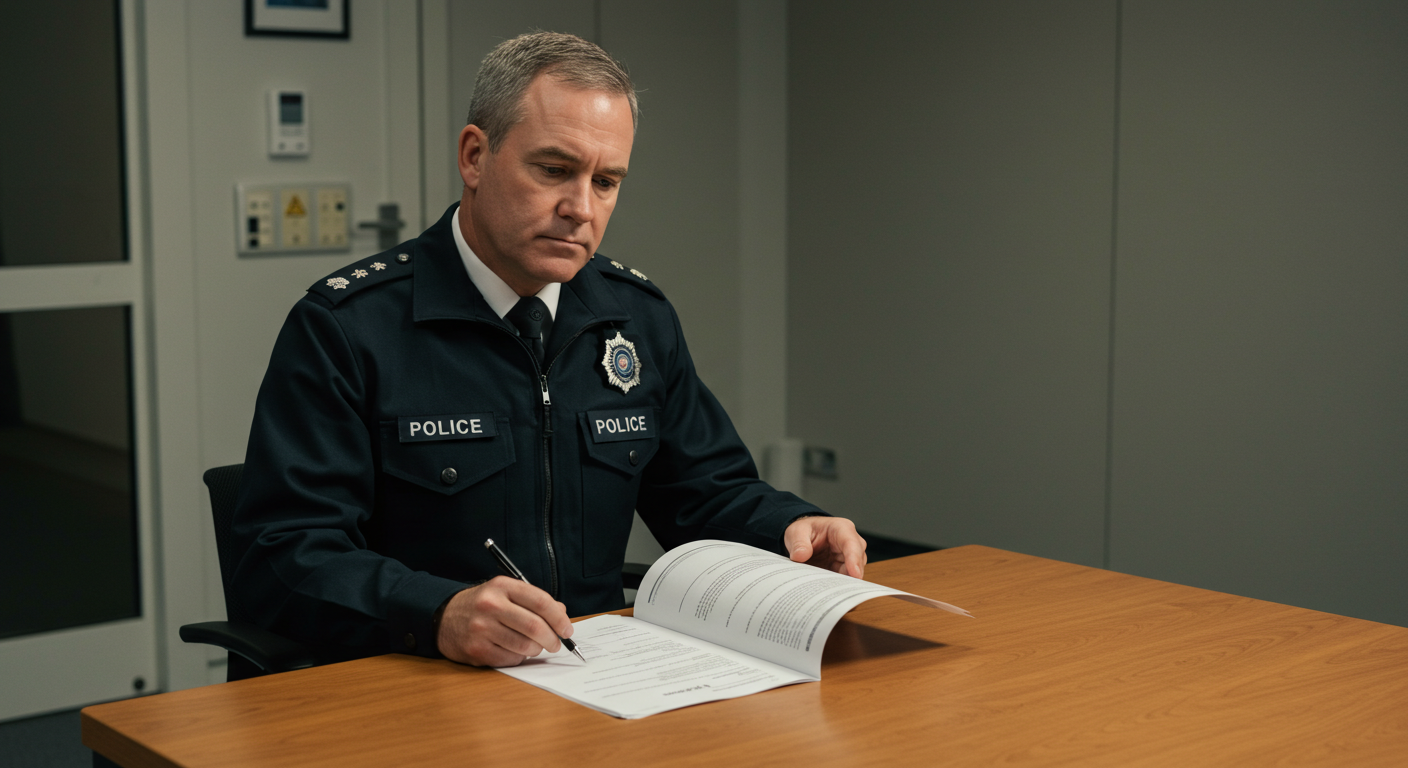
When it comes to the legal system in the UK, the appeals and review process, also known as the “Appeals and Review Process,” plays a crucial role in the handling of violent crime cases. This important process allows individuals who have been convicted of a crime to challenge their conviction or sentence in a higher court.
The purpose of the Appeals and Review Process is to ensure that justice is served, and any errors or injustices that may have occurred in the original trial can be rectified.
Through the Appeals and Review Process, individuals are given the opportunity to present new evidence, challenge witness evidence , or argue any legal errors that may have taken place during their trial.
The primary goal of this process is to provide a fair and impartial examination of the case, allowing for a thorough review of the evidence and the legal arguments made by both sides. By incorporating the Appeals and Review Process, the legal system aims to uphold the principles of justice and protect the rights of individuals involved in criminal cases in the UK.
How Can a Convicted Person Appeal Their Sentence?
To appeal their sentence in the UK, a convicted person must follow a specific process. Here are the steps:
- Consult a lawyer to assess the case and determine grounds for appeal.
- File a Notice of Appeal with the appropriate court within the specified timeframe.
- Submit a written argument outlining legal errors or miscarriages of justice.
- Attend an oral hearing to present the case before a panel of judges.
- The panel reviews the evidence, listens to arguments, and makes a decision.
- If successful, the sentence may be reduced, overturned, or a retrial ordered.
Understanding the appeals process is essential for anyone seeking to challenge their conviction and sentence.
Are There any Mechanisms in Place for Reviewing Convictions?
Yes, there are mechanisms in place in the UK legal system for reviewing convictions. These mechanisms exist to ensure that justice is served and that any potential errors or miscarriages of justice are corrected. One such mechanism is the appeals process, where a convicted person can appeal their sentence or conviction to a higher court.
There are mechanisms for reviewing convictions outside of the appeals process, such as the Criminal Cases Review Commission (CCRC).
The CCRC investigates potential miscarriages of justice and can refer cases back to the courts for review. These mechanisms provide a safeguard against wrongful convictions and help maintain the integrity of the legal system.
Support for Victims and Rehabilitation of Offenders
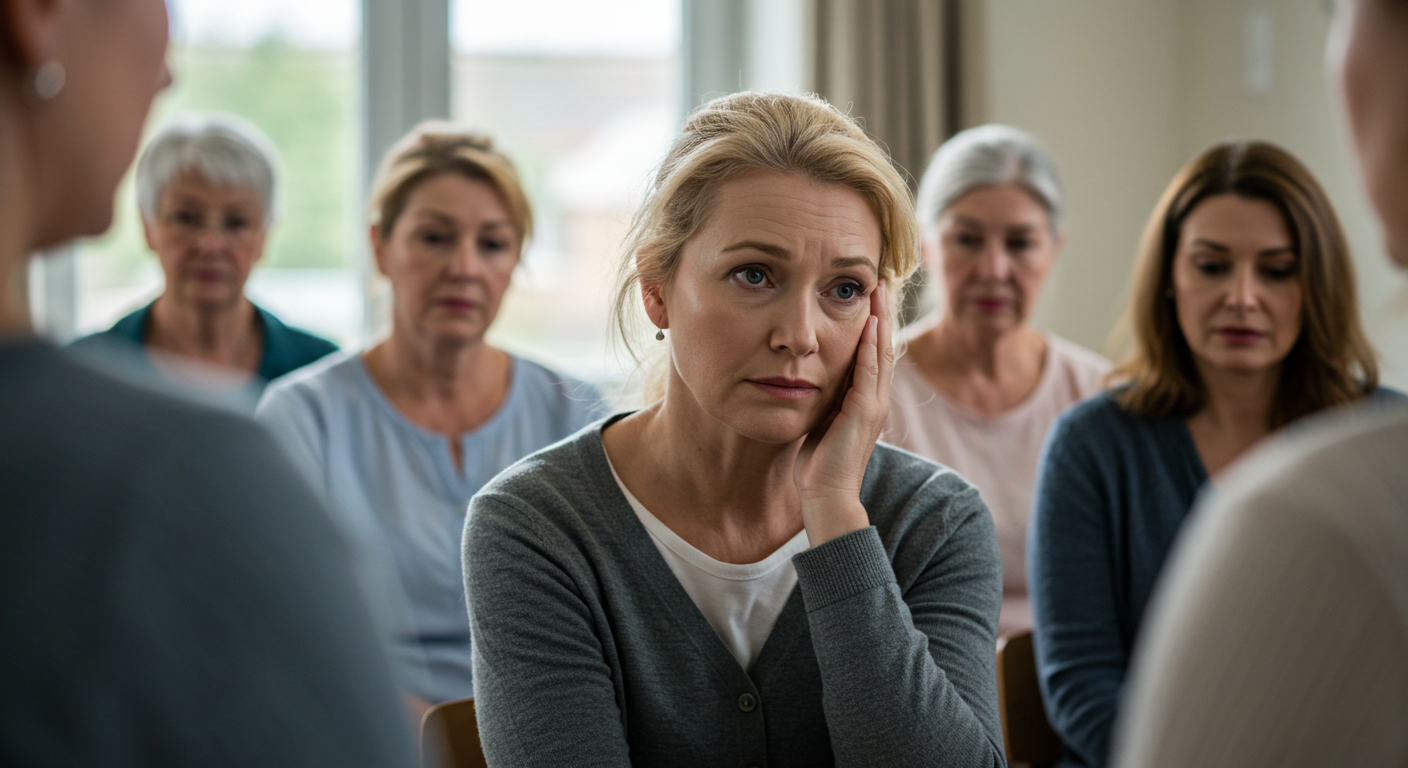
Support for victims and rehabilitation of offenders are crucial aspects of the legal system in the UK when handling violent crime cases. The goal is to provide necessary support and resources to victims, helping them to recover physically, emotionally, and financially.
Various organisations and programs offer counseling, financial assistance, and legal advice to victims. Additionally, the justice system puts a strong emphasis on the rehabilitation of offenders with the aim of reducing recidivism rates.
This involves providing education, vocational training, and therapy programs to help offenders reintegrate into society and lead law-abiding lives. Consequently, the ultimate objective is to create a safer community and promote long-term positive change for both victims and offenders.
What Support Services are Available for Victims of Violent Crimes?
Victims of violent crimes in the UK have access to various support services to help them cope with the aftermath of their experiences. These support services aim to provide emotional support, practical assistance, and guidance to victims. Some examples of the available support services for victims of violent crimes are:
1.Victim Support: This national charity organization offers emotional support, practical help, and information to victims of crime. They can provide assistance in navigating the criminal justice system, accessing financial support, and finding local support groups.
2.Rape Crisis Centres:These centers provide specialised support to survivors of sexual violence. They offer helplines, counselling services, and advice on navigating the legal process.
3.Domestic Violence Services:Organizations such as Refuge and Women’s Aid offer support and accommodation for victims of domestic violence. They provide safe spaces, counselling, and practical assistance for those experiencing abuse.
4.Specialist Services:There are also specific support services available for victims of hate crimes, child abuse, and other forms of violence. These services cater to the particular needs of victims of different types of crimes.
It is important for victims to be aware of these support services and reach out for help if needed.
How Does the Legal System in the UK Approach Offender Rehabilitation?
The legal system in the UK takes a comprehensive approach to offender rehabilitation in order to reduce re-offending rates and promote community reintegration. Rehabilitation programs play a crucial role in this process.
Offenders are given the opportunity to participate in various programs, including education, vocational training, and therapy. These programs address the underlying issues that led to their criminal behavior and help them develop pro-social skills.
Community support is another key aspect of the UK’s approach to offender rehabilitation. Probation officers play a vital role in providing support to offenders. They monitor their progress and ensure that they comply with court orders. By offering guidance and supervision, probation officers help offenders reintegrate into the community and prevent further criminal activity.
Probation services play a significant role in the offender rehabilitation process as well. Specialised services, such as the Offender Management Service, provide tailored supervision and support based on the specific needs of each offender. This personalized approach ensures that the rehabilitation process is effective and addresses the individual circumstances of the offender.
Restorative justice is also a prominent feature of the UK’s legal system. It encourages offenders to take responsibility for their actions and make amends to their victims. By promoting restorative justice practices, the legal system aims to foster healing and reconciliation between offenders, victims, and the community as a whole.
Overall, the legal system in the UK adopts a comprehensive approach to offender rehabilitation, incorporating rehabilitation programs, community support, specialized probation services, and restorative justice practices in order to reduce re-offending rates and facilitate community reintegration.
Frequently Asked Questions
How does the legal system in the UK handle violent crime cases?
The legal system in the UK handles violent crime cases through various processes and penalties. Offenses ranging from common assault to murder are included under violent crime. Charges for violent crimes involving corrosive substances include throwing or applying corrosive fluid with intent to harm, possession of an offensive weapon, threatening with an offensive weapon, or causing grievous bodily harm with intent. Different criminal charges apply depending on the level of injuries involved in assaulting another person.
What are the common punishments for violent crimes in the UK?
The severity of punishment for violent crimes in the UK varies depending on the offense. Common assault carries a maximum penalty of six months’ imprisonment and/or a fine. Actual bodily harm (ABH) carries a maximum penalty of six months in the magistrates’ court and five years in the Crown Court, along with an unlimited fine. Inflicting grievous bodily harm (GBH) or wounding carries a maximum penalty of five years’ imprisonment, while causing GBH or wounding with intent to cause GBH carries a maximum penalty of life imprisonment.
How does the UK criminal justice system address cross-border crime?
Despite the UK’s departure from the European Union, the UK criminal justice system cooperates with organisations such as Europol and Interpol to address cross-border crime. These partnerships aid in the investigation and prevention of criminal activities across borders.
What is the UK’s crime rate and how does it compare to other European countries?
The UK’s overall crime rate is the 8th highest in Europe according to the European Crime Index. In 2021, there was a 14% increase in crime compared to 2019. Fraud and cybercrime saw a significant rise, while theft decreased by 18%. Violent crimes accounted for 15% of the total crime by type.
How can individuals protect themselves against violent crime in the UK?
To protect themselves against violent crime, individuals can take simple steps such as securing their property, being cautious online, and reporting suspicious activities to the police. It is also important to be aware of UK laws regarding offensive weapons, as it is illegal to harm or threaten others with these weapons.
How can one report a violent crime in the UK?
Reporting a violent crime in the UK involves contacting the police either through emergency numbers or non-emergency helplines. The police will guide individuals through the process of reporting the crime and provide further assistance as needed.
Notice: Informational Content Disclaimer
The content provided on this website, including articles, blog posts, and other informational materials, is intended for general informational purposes only. It is not intended as, and should not be considered, legal advice.
Visitors to this website should be aware that the information presented here is not a substitute for seeking legal advice from a qualified solicitor or legal professional. Each individual's legal situation is unique, and the information provided may not be applicable to specific circumstances.
If you require legal advice or have specific legal questions, we encourage you to contact us directly. Our experienced team of solicitors is here to assist you with your legal needs and provide tailored advice to address your concerns.
Please be advised that any communication through this website, including the use of contact forms or email, does not create a solicitor-client relationship. Confidential or time-sensitive information should not be sent through this website. To establish a solicitor-client relationship and discuss your legal matters in detail, please contact us for a consultation.
We strive to provide accurate and up-to-date information, but we make no representations or warranties regarding the accuracy, completeness, or suitability of the information contained on this website. We shall not be liable for any reliance placed on the information provided herein.
Thank you for visiting our website. We look forward to the opportunity to assist you with your legal needs.




